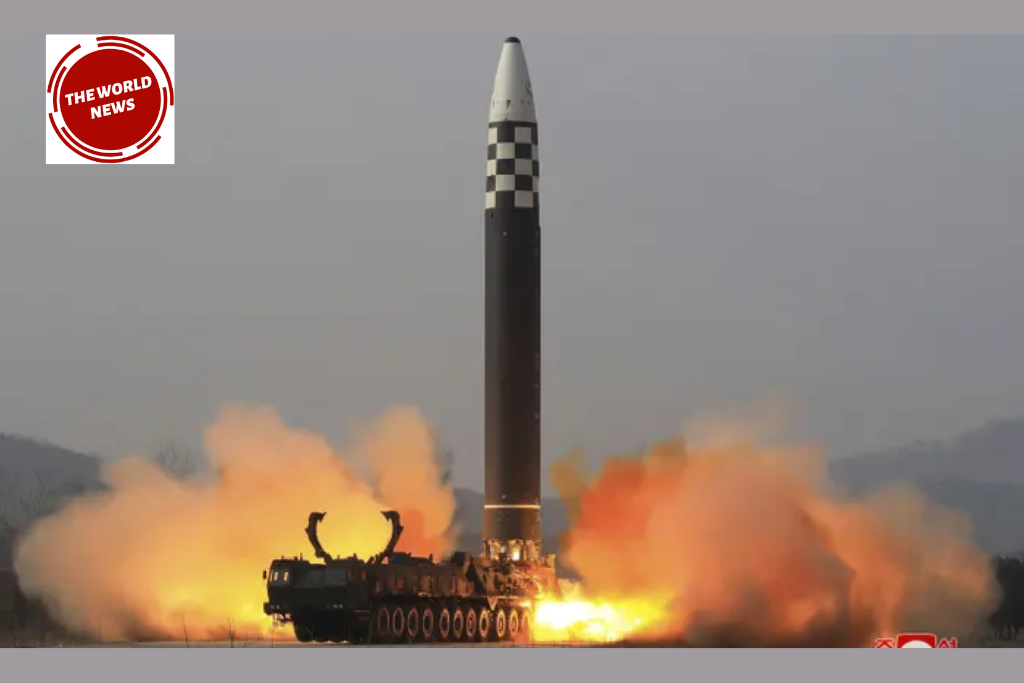In a recent development, North Korea has reportedly fired what appears to be a long-range ballistic missile from the Pyongyang area towards its east coast. The launch has raised concerns and is seen as a potential escalation of tensions between South Korea and the United States.
This article aims to provide an overview of the situation, discussing the missile launch, the response from neighboring countries, and the implications for regional security.
It is crucial to continue fostering diplomatic channels and strengthening alliances to effectively address North Korea’s nuclear capabilities and mitigate the potential risks they pose to regional and global security.
The ballistic Missile Launch
According to South Korea’s Joint Chiefs of Staff, North Korea launched the missile, believed to be a long-range ballistic missile, from the Pyongyang area.
Japan’s Coast Guard confirmed the launch, stating that the missile fell into the Sea of Japan (also known as the East Sea) after reaching a flight time similar to previous intercontinental ballistic missile (ICBM) tests conducted earlier this year.
The launch signifies a significant capability for North Korea, as ICBMs have the range to reach the continental United States.
Tensions and Threats
The missile launch follows recent threats issued by North Korea against US military reconnaissance planes flying over nearby waters in the East Sea.
Senior North Korean official Kim Yo Jong, who is also the sister of the country’s leader Kim Jong Un, said that a US spy plane repeatedly violated the North’s exclusive economic zone., warning of a “very critical flight” if such intrusions continued.
This fiery rhetoric and provocative behavior are not uncommon for North Korea and are often employed to rally domestic support and disrupt diplomatic coordination against the regime.
Regional Response
The missile launch and threats have raised concerns among neighboring countries and the international community. At a NATO summit in Lithuania, the leaders of South Korea, Japan, and the US discussed the North Korean issue.
A communique from the summit called on North Korea to abandon its ballistic missile and nuclear weapons programs, urging the country to engage in dialogue with concerned parties. However, North Korea has shown no indication of willingness to negotiate with Washington or Seoul.
Experts’ Perspectives
Experts offer insights into North Korea’s behavior and motives. Leif-Eric Easley, an associate professor of international studies at Ewha Womans University in Seoul,
suggests that North Korea’s bellicose statements and military tests are part of a larger pattern aimed at inflating external threats to justify weapons testing and rally domestic support.
Chun In-bum, a former lieutenant general in the South Korean Army, believes that the recent warning of shootdowns is a tactic employed by North Korea to divert attention and increase tension, rather than a genuine intention to carry out such actions.
Implications for Regional Security
The latest missile launch raises concerns about regional security and stability. It highlights the need for continued vigilance and coordination among countries in the region.
South Korea, the United States, and Japan have been conducting joint military exercises aimed at deterring potential North Korean military threats.
It is crucial for these countries to maintain a united front and explore diplomatic channels to engage North Korea in meaningful dialogue, urging the regime to abandon its nuclear weapons and ballistic missile programs.
Conclusion
North Korea’s suspected long-range ballistic missile launch has heightened tensions in the region. The launch, coupled with the regime’s threats and provocative rhetoric, underscores the need for concerted efforts to address the North Korean nuclear issue.
Regional security remains a top priority, necessitating diplomatic engagement, multilateral cooperation, and continued defense preparedness to ensure stability in Northeast Asia.
The international community must remain vigilant and work towards a peaceful resolution to prevent further escalations on the Korean Peninsula.
For all the latest news, keep visiting The World News.



